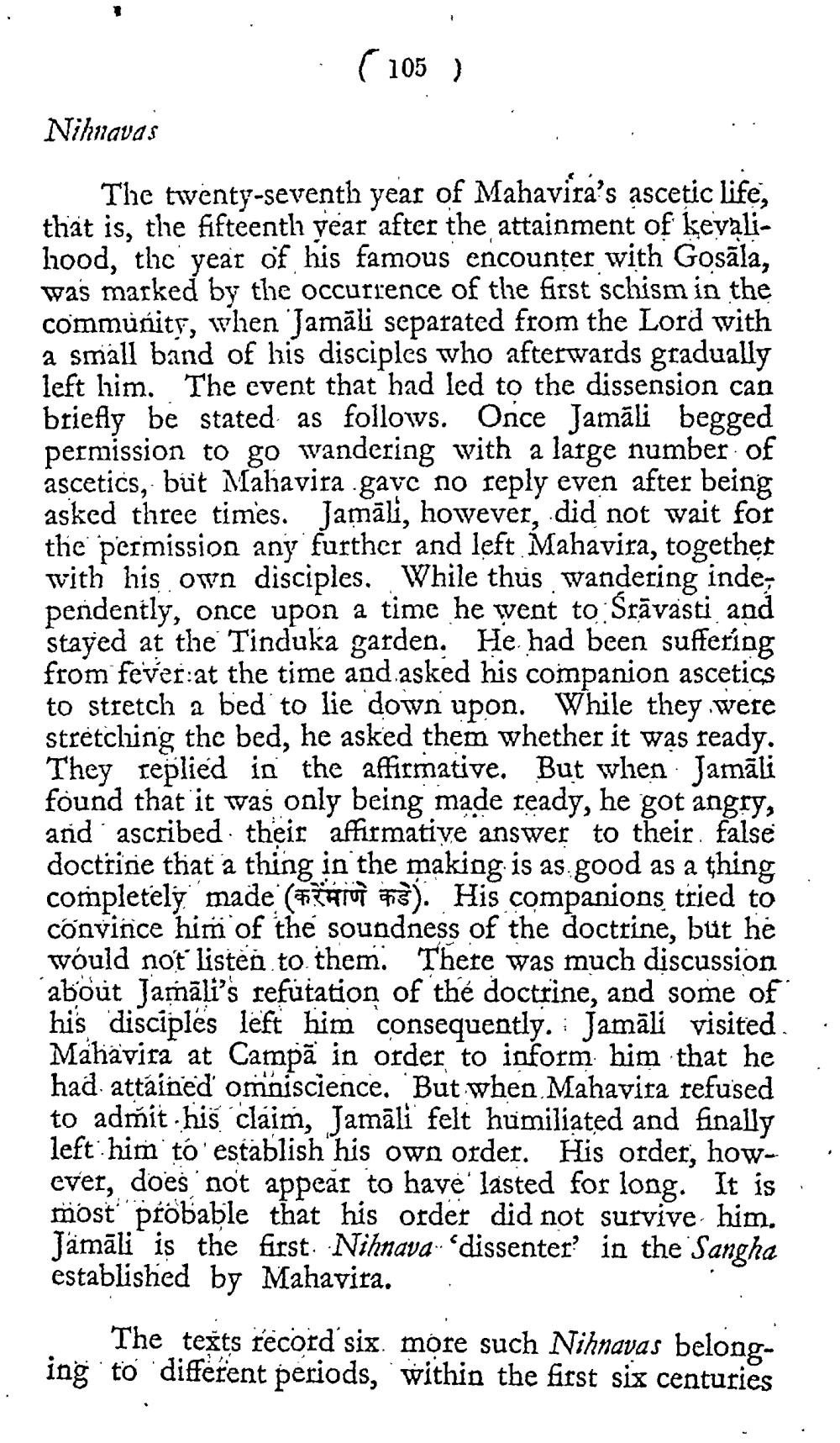________________
.
( 105 )
Nihnavas
The twenty-seventh year of Mahavira's ascetic life, that is, the fifteenth year after the attainment of keyalihood, the year of his famous encounter with Gosāla, was marked by the occurrence of the first schism in the community, when Jamäli separated from the Lord with a small band of his disciples who afterwards gradually left him. The event that had led to the dissension can briefly be stated as follows. Once Jamāli begged permission to go wandering with a large number of ascetics, but Mahavira gave no reply even after being asked three times. Jamāli, however, did not wait for the permission any further and left Mahavira, togethet with his own disciples. While thus wandering inde, pendently, once upon a time he went to Srāvasti and stayed at the Tinduka garden. He had been suffering from fever:at the time and asked his companion ascetics to stretch a bed to lie down upon. While they were stretching the bed, he asked them whether it was ready. They replied in the affirmative. But when Jamali found that it was only being made ready, he got angry, and ascribed their affirmative answer to their false doctrine that a thing in the making. is as good as a thing completely made (FHM 95). His companions tried to convince him of the soundness of the doctrine, but he would not listen to them. There was much discussion about Jamāli’s refutation of the doctrine, and some of his disciples left him consequently. ; Jamāli visited. Mahavira at Campã in order to inform him that he had attained omniscience. But when Mahavira refused to adăit his claim, Jamali felt humiliated and finally left:him to establish his own order. His order, however, does not appear to have lasted for long. It is most probable that his order did not survive him. Jämāli is the first. Nihnava 'dissenter in the Sangha established by Mahavira. .
The texts tècord six. more such Nihnavas belonging to different periods, within the first six centuries




